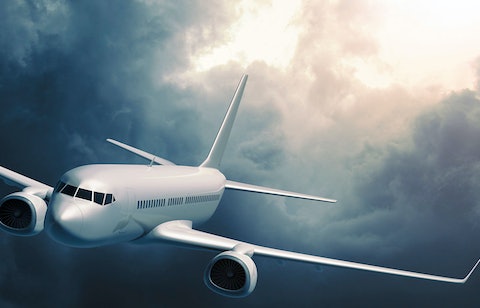The Airline Experience
The usual airplane chatter had ceased, and there was dead silence except for the sounds of the aircraft shuddering and luggage moving in the overhead compartments. This was an encounter with my less preferred local carrier. Customary to this airline is anything from delayed flights to canceled flights. On the day of my flight, I was prepared for the former and not the latter. However, my experience was none that I had encountered before.
I am Ahimaa (pronounced a: hi: maa), a Customer Experience Management Consultant and a sucker for great Customer Experience stories. Journey with me as I relive this interesting encounter and isolate the CX learning points.
It was a cold, wet and dreary Friday. I arrived at the airport relatively early for my 4 pm flight because I wanted to avoid the occasional hustle at the check-in counter. There have been instances where the check-in counter is closed mid-process and transferred to another counter without any notification to passengers waiting in line. You have read into the chaos as a passenger and change queues. On arrival, the information screen displayed delays in 3 earlier flights for Kumasi, I wasn’t surprised as it was expected. The staff at the check-in counter was very pleasant, he cracked a few jokes and informed me of the prior delays, resulting in a 45 minutes delay in all Kumasi flights.
In retrospect, I believe he was being extra nice to mask the actual delay period.
The 45 minutes delay turned to 2 hours 30 minutes.
I skipped lunch because I was looking forward to this amazing kafta at Gingerz; a Lebanese restaurant owned by a friend whom I planned surprising, as she was unaware of my trip. My plan was to avoid airport snacks in anticipation of the evening feast. Nonetheless, I was forced to get some snacks to curb my hunger as my tummy began growling for food, as the delay threw a monkey wrench into my plans.
There was one boarding call hoax that left us more frustrated; though there was no boarding call, passengers were rushing towards the boarding gate so I followed suit. The airline staff apologized and explained that though the plane was on the tarmac, the captain had requested we wait; Considering the feeling of irritability among passengers an explanation would have been helpful.
It was such a relief when we were eventually called for boarding. The pilot apologized for the delay explaining of very bad weather along the route to Kumasi and further prepared us for turbulence ahead. The duration of the flight was to be 30 minutes, I remember musing that 30 minutes was quite okay to endure turbulence.
Interestingly, I heard every syllable of the pilot without the usual static, I guess it was imperative that all passengers heard clearly what was ahead.
The plane taxied and nose up we went.
We left Accra at 6:30 pm with the expectation of arriving in Kumasi at 7 pm. At 7 pm, the cabin crew gave the preparation to land announcement. However, there were no horizon lights in sight, nor a change in the engine sound depicting descent. At 7:15 pm the pilot announced that he used a longer route due to the bad weather and that we will be landing in 8 minutes.
This extended to 30 minutes, and the longest 30 minutes of my life.
As a claustrophobic, I always prefer window seats on smaller planes to enable the use of the horizon as a distraction. Though I got a window seat, it did not help. The rain clouds were so dark with occasional lightning which gave some semblance of illumination. Though the pilot warned us of turbulence ahead, the experience was nothing I had encountered before. It felt like there were crazy potholes in the clouds, it was so bad the plane shuddered incessantly.
The fact that I could not see the horizon in the dark, with the incessant shuddering of the plane from the turbulence, coupled with a sudden memory of all the documentaries I had watched on air crash investigations set off anxiety symptoms of nausea, shortness of breath, migraine, cold sweat etc. I tried to calm myself by practicing anxiety breathing.
The usual airplane chatter had ceased, and there was dead silence except for the sounds of the plane shuddering and luggage moving in the overhead compartments. Across the aisle in the dark I saw an elderly lady silently praying; her lips were moving without any sound, another gentleman was praying with either a Rosary or Misbaha/Tasbih. As a Christian, these gave me comfort as I was also praying silently. I drew inspiration from Mathew 18:20 “Where two or more are gathered together in my name, there I am in their midst”. Indeed, I could sense a lot of passengers praying and knew the God of the different religions will hear us and keep us safe.
There were others who were unperturbed by the chaos. Like the gentleman seated next to me. He sensed my discomfort and tried to calm me. He explained that due to the storm the pilot had been put on hold by the Kumasi air control tower; the tarmac was unsafe for landing and the runway was too short. In such bad weather, the plane needed a longer runway to land. Therefore, being on hold meant flying near the airport until it was safe to land.
Well, great insight, however, it did nothing to calm my nerves.
At approximately 8:00 pm the pilot tried to land; I felt the descent of the plane and saw the horizon lights of the Kumasi airport. The landing gears were engaged briefly, retracted and up we went again. Within that few seconds of the descent, I saw the full impact of the storm; torrential rain amidst lightning, and I was grateful that the pilot wasn’t a daredevil, but a level-headed man who also wanted to get home safe to his family.
Right after the unsuccessful landing stint, the pilot announced that due to the bad weather conditions, it was unsafe to land, so we were returning to Accra.
It was music to my ears, though I was still feeling sick, I felt a great sense of relief and could not wait to step on solid ground. As we landed in Accra there was spontaneous applause for the pilot for bringing us safe and sound amidst chattering of relief from passengers, and telephone calls to loved ones explaining why we were unreachable for 2 hours.
The captain and his crew apologized profusely to every passenger as we disembarked and made our way to the waiting buses. That was a great demonstration of heartfelt empathy, where the crew felt our pain and showed they understood and cared. Under the circumstance, they could have explained it away as resulting from acts of nature, but they still took responsibility, which showed in both their verbal and nonverbal communication.
Back in Accra, with the Kafta feast forgotten, I thought it was a matter of going for my luggage and proceeding home. I thought wrong.
Stay tuned for part two.



